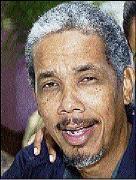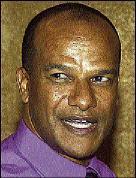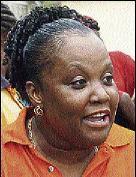Arthur Hall, Senior Staff Reporter



Burke, Bunting and Neita-Headley
STILL SMARTING from the recent stinging criticisms of its group system, the People's National Party (PNP) has drafted several constitutional changes designed to stamp out the practice of seasonal and paper groups.
PNP delegates will be asked to vote on the changes when they meet in the business session of their 70th annual conference this morning.
These changes are part of a bid by the PNP to prevent the controversy which marred the lead-up to the September 20 presidential race.
Life of the party
The groups are the first line of organisation in the PNP and supply the majority of delegates who vote in internal elections. But, over the past 20 years, they have been moved to the periphery of the party, with the review team which conducted the appraisal after the 2007 elections arguing that there was a critical need to breathe new life into the groups.
"There was a time when the groups were the life of the party and group members could tell the party leaders what dem fi do," an elderly PNP supporter told The Sunday Gleaner during last week's meeting of the Region Three Executive Council.
"But the groups nuh have no voice now and not even the MP, dem nah listen to group members, only delegates," the Comrade added.
That is just one of the many criticisms of the leadership of the PNP, which seemed to ignore the groups during the heady days when the party held power for 18 years.
In the past five years, several question marks have surrounded the operations of these groups, with veteran PNP member Paul Burke leading the criticisms.
Burke was outspoken in the lead, up to the latest presidential election alleging that a number of groups existed only on paper, while others were only revived because an internal election was approaching.
At that time, Burke warned that this would affect the legitimacy of the contest between Portia Simpson Miller and Dr Peter Phillips and said he would neither accept nor recognise the process.
Bogus groups
The party's general secretary, Peter Bunting, was quick to downplay the impact of bogus groups on the election even as he admitted that hundreds had been taken off the list.
"Many amendments are coming to our constitution to plug some of the loopholes and reduce some abuses, but the kind of hyperbole that I hear being used to suggest that the entire system, or half the system is bad, is really an exaggeration," Bunting told The Gleaner then.
Now that the election is out of the way, Burke and Bunting are at the forefront of efforts by the secretariat to implement the changes.
"These changes are designed to build real and powerful organisations at the community level so that the party can redevelop its outreach arm, recruit members, carry out the political education process and monitor the elections," Burke told The Sunday Gleaner.
Some PNP supporters have argued that the groups have outlived their usefulness and should be scrapped, but that is a view not shared by Burke.
"The party has to redefine what its new purpose is and once that is clear, there is going to be a role for the groups on the ground," Burke argued.
That is a position echoed by recently elected chairman of the PNP's Region Four, Natalie Neita-Headley, who agrees that the groups have to be more than an election machinery.
"The concept and principles on which the group structure was built was to ensure that the ordinary Jamaicans in all communities would have a critical role in the development of the party and subsequently, the country," said Neita-Headley.
Neita-Headley, like Burke, believes there will always be a role for the groups.
"They have a key role to play. There are many persons who want to serve, their country or their party and this is an avenue through which they can serve and we must get back to days of the group playing a lead role in the community," Neita-Headley argued.
Major changes
"Ground politics is indispensable and, therefore, there may be fewer groups, they might become more powerful mechanisms of the party but there is a role and function for party groups," added Burke.
Among the major changes proposed for the PNP's group structure is that no constituency should have more groups than the number of polling divisions.
"That is so that each group takes responsibility for each polling division and it is a very transparent and equitable way to determine how many groups we should have. So that it is not the secretariat setting the limit and no one can say you favour one constituency over another," Burke said.
Other changes to be voted on by the PNP delegates today is a proposal restricting members from joining more than one group at a time and a periodic audit of the groups by the secretariat.
This audit will be triggered once more than 10 groups are registered in a division.
arthur.hall@gleanerjm.com.

